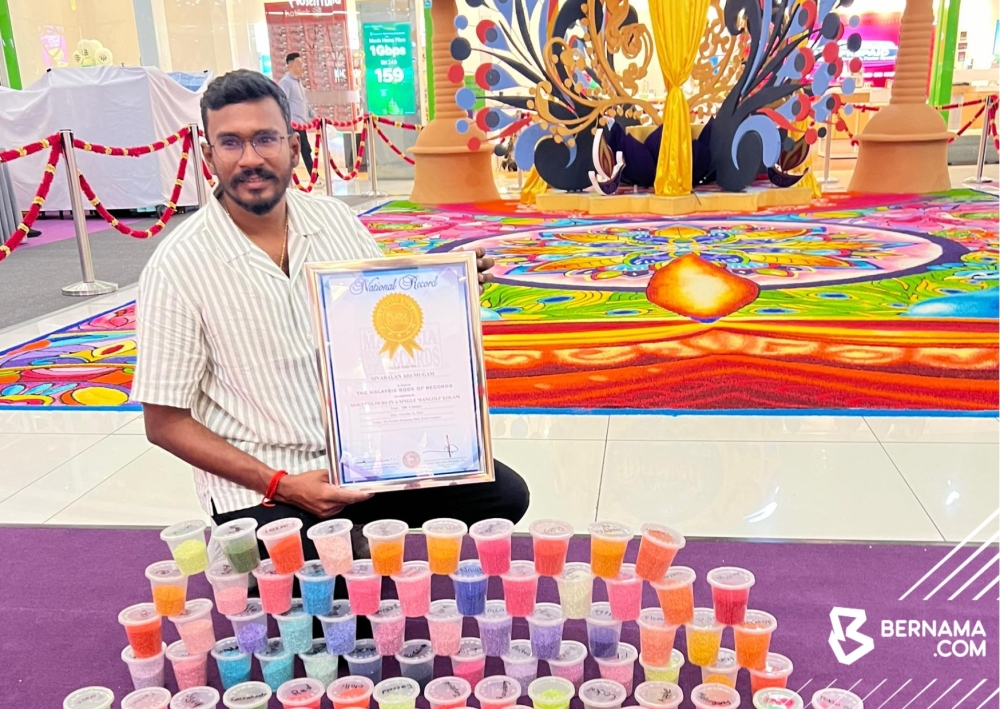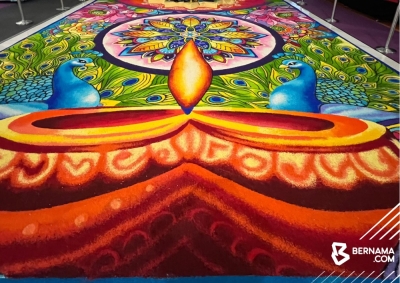KUALA LUMPUR, Oct 21 — Kolam, the vibrant and intricate traditional Indian floor art, continues to be a central feature of Deepavali celebrations, adorning homes and temples with its stunning designs.
A. Sivabalan, the founder of Life Creation Rangoli Kolam Malaysia, recently etched his name in the Malaysia Book of Records (MBR) by creating a kolam featuring one hundred colours at Nu Sentral here.
He said this record-setting creation is the culmination of years of dedication and a deep love for the art.
“All the hard work has finally paid off. I’ve held onto this dream for so long, and today it’s a reality. I’m honoured to use the talent God has blessed me with,” he told Bernama.
The 20- by 25-foot kolam was crafted in conjunction with Deepavali and will be on display at the mall from October 13 until November 3.
Deepavali falls on October 31.
Sivabalan, who developed a passion for kolam at the age of 10, said he created it from 150 kilogrammes of coloured rice, adding it took him two days to complete.

A. Sivabalan, the founder of Life Creation Rangoli Kolam Malaysia, recently etched his name in the Malaysia Book of Records (MBR) by creating a ‘kolam’ featuring one hundred colours at Nu Sentral. — Picture from X/Bernama
Kolam is traditionally made from coloured rice flour or powder and it symbolises prosperity, a warm welcome and the triumph of light over darkness. Deeply rooted in ancient Hindu traditions, each design offers a glimpse into the artist’s heritage.
“The process of creating this kolam (in Nu Sentral) spanned about three months. I had to send colour samples for approval to the mall and received feedback before mixing the 100 colours. In total, I sent over 100 pictures for confirmation before finalising the kolam design,” Sivabalan explained, adding his family and two friends R. Ananthan and K. Kiritharen helped him by mixing the colours and handing them to him while he worked on his kolam.
The intricate design incorporates motifs such as the theebam (oil lamp), lotus flowers and peacocks.
Sivabalan also expressed concern over the declining interest in the Indian traditional floor art among the younger generation and plans to start classes to teach young people the art of creating kolam.
“It’s part of our culture and can be easily learned, but many young people are hesitant to try even though we are willing to guide them,” he said.
He added that initially, he considered kolam creation as a hobby but now it has become a profitable venture for him. — Bernama

